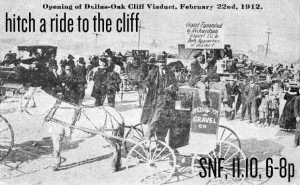Pastoral Backstory 11.7.13

(What is the Backstory and why?)
November 7th, 2013
Point 3 (the one I skipped Sunday, but this time no landspeeders)
Let me make the point first by sharing two stories that illustrate and, I hope, validate it.

I’ve referenced him before, but Roman Emperor Julian (d. 363) was a notable synthesis of philosopher and philanthropist. Despite being reared in a family of Christians, he departed from his childhood faith (known thenceforth as Julian the Apostate) and eventually championed Greek religion while ascending to the throne in the early 4th century.
But near the end of his reign, he wrote to the high-priest of greek worship, Arsacius, in a bit of distress. “The Hellenic religion does not yet prosper as I desire,” the emperor wrote wistfully, “and it is the fault of those who profess it.” He then proceeded to enumerate all the specific reasons why faith in the greek pantheon of gods had proven so insipid among its adherents. (His candid concessions about the faithful’s disinterestedness in the welfare of strangers and the shamefulness of the priesthood are all too relevant outcries.) Among the most blatant hypocrisies by his estimation was the absence of his brethren’s benevolence toward the destitute. He himself enacted a program to provide for the poor, but still lamented that a corresponding mercy campaign had not materialized at the “grass-roots” level. And compounding his anguish was the remarkable compassion evidenced by the Jews and Christians of that day. You almost hear his embarrassment when he writes, “For it is disgraceful that, when no Jew ever has to beg, and the impious Galilaeans [Christians] support not only their own poor but ours as well, all men see that our people lack aid from us.” [emphasis mine]. Jewish and Christian compassion for both their own communities and the non-believing constituencies around them proved so potent a phenomenon that even the Roman emperor could not dismiss it.

Much closer to our time, C. Everett Koop was, as many of you may remember, the US Surgeon General during the 1980s. His Christian faith was unambiguous, yet he showed remarkable deftness in allowing his faith to inform his work while remaining faithful to the demands of his public office. Philip Yancey, in his book What’s So Amazing About Grace?, writes movingly of how Koop acted with compassion and clarity amid the oncoming storm of AIDS. (You can read the most basic distillation of that chapter here.) While political administrations of the day were leery about giving voice to this growing tragedy, Koop became an outspoken advocate of research, education, and compassion for those already wracked with the disease. Koop was vilified from both directions. Some chastised him for his unequivocal warnings about how the disease was most easily transmitted; others criticized his call for an even earlier exposure to credible sex-education. But he remained undauntedly committed to marshaling both scientists and communities to render aid to the sufferers. This Surgeon General spoke plainly concerning his convictions about homosexual practice, but his authentic presence to the gay community made him a champion to them: one day in Boston, Koop ascended the dais to address a crowd of some 12,000 gay men and women to the laudatory shouts of “Koop! Koop! Koop!”

Psalm 72 envisions the nations coming in tribute to this ideal king of Israel. It sounds a note of his power as that which vanquishes the enemies of Israel (v.9), but the most prominent reason for the nations’ reverence for this king was not fear, but deep respect. At the hinge between verse 11 and 12 is the little word, “for” that explains their adulation:
May all kings fall down before him, all nations serve him!
For he delivers the needy when he calls,
the poor and him who has no helper.
It’s not the obeisance of intimidation compelling their tribute, but their supreme admiration for the king’s compassion to the needy. His compassion provokes their worship. They bow before him not because he’s rattling the sabre, but because he’s defended the defenseless. His faithful presence to the world–and especially those desperate for but deprived of the shalom we spoke of–represents a potency in the eyes of onlookers that none should underestimate. In that we find our application of the point: while we may think our simple, self-forgetful acts of sustained kindness will be of little import, the respect for such compassion from those we did not expect to show it proves the persuasiveness of our presence to the world.
Moreover it’s Gospel-centered action is that sets us up for Gospel-centered messaging, which is the topic we turn to this Sunday with Peter’s words in 1 Peter 3:13-17.
Ira Glass is a celebrated modern story-teller as editor of the weekly radio program, This American Life. Unequivocal in his atheism, Glass nevertheless has deep respect for those who look to Jesus as their foundational hope. His respect goes so far as to have sat down last year for an interview with a believer and share both his reasons for disbelief and his previously secreted admiration for those with belief. Below is one excerpt from the interview. (The remainder is broken up into segments on the same YouTube Channel.)
If the Christian story is something that can get even Ira Glass to literally lean in and herald its prime facie wondrousness, the question we must ask ourselves is: could we tell that story with like intelligibility and winsomeness to someone who’d never heard it before? In summarizing so effortlessly the Gospel’s essence–and in a way tailored to the constituency envisioned in his retelling–Glass takes us to school (and maybe to the woodshed, too) in how to “make a defense of the hope” in us.
If we’re to be present to the world with a Gospel-centered message, I think Peter argues three things are necessary:
- a moment to expect
- a mandate to fulfill
- and a manner to adopt
*****
Community quick hits:

Sunday Night Fellowship
Sunday Night Fellowship erupts in Oak Cliff this Sunday, at the Kull’s. Have a look here for details and bring a friend.The time for nominating elder candidates closes this Sunday. We’ll have forms available. Or you may also download the form here and email us your nomination. An election will be held at a congregational meeting on December 1st during our 2nd hour, so please plan to attend! (If you’d like background into the process of nominating, training, and electing elders have a look at Chapter 24 of our Book of Church Order.)
- Just to repeat, we’ll host our next Membership Class on January 10-11 (Fri-Sat). The weekend is in some sense like pre-marital counseling: it will help you get a handle on the vows you’ll be taking as you become part of the Bride of Christ. As we explained the last time around, the class does not obligate you to join, but it is prerequisite for membership. After the class, should you elect to stand for membership, you’ll meet with some of our elders for an interview that first and foremost seeks to know you better, to know how Christ became part of your story, and to know how to pray for you. It also will go over the nature of the vows, a summary of our church’s vision, and then give you opportunity to ask questions of any sort. Make a point to block out your calendar for January 10-11 if you’d like to become a member.

*****
And would you pray:
- for Phil and Sheila Steven’s daughter, Sara, and her family in Indiana
- for Cal Ramage and his team wrapping up their medical/dental mercy trip in the Amazon
- for “Thomas,” the friend of Cal’s who’s suffering from esophageal cancer: for both extraordinary healing and a new and extraordinary peace
- for Sheri McMillan’s mother as she recovers from esophageal surgery last week
- for Justin and Amanda Isaac as they welcome little Aliah Victoria into the world (born November 5th)
- for Joan Wardell and The Lippert family as they soon wrap up their time among us
